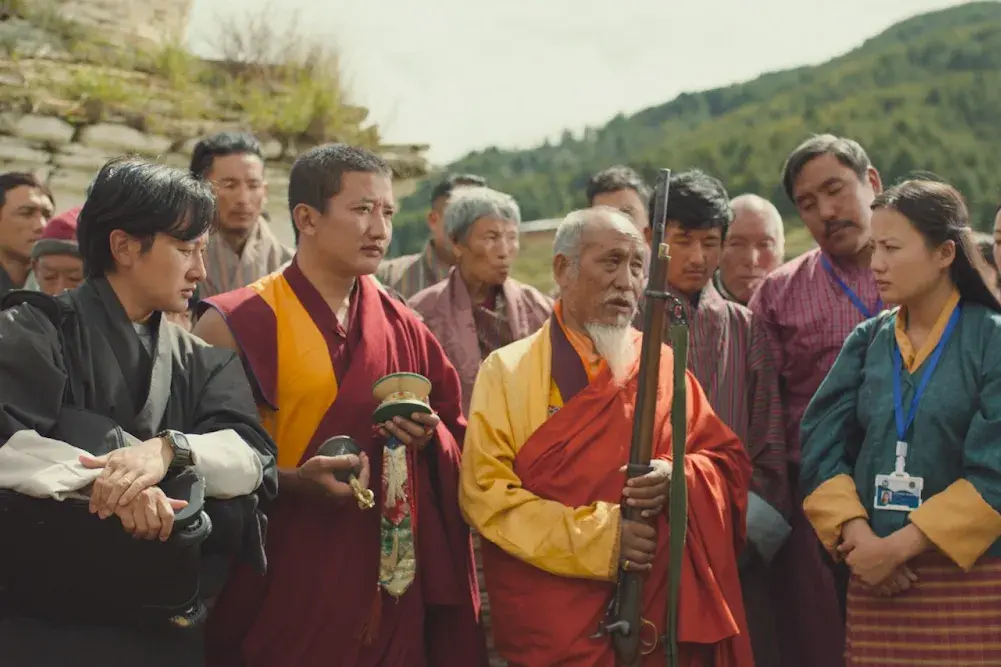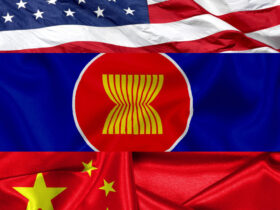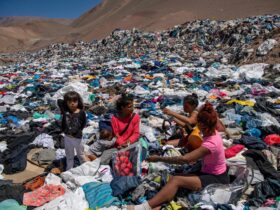“The Monk and the Gun,” a 2023 Bhutanese film written and directed by Pawo Choyning Dorji, was theatrically released in the United States on Feb. 9, 2024. The film tells two concurrent stories. The first is of Bhutan’s mock elections as they begin to adopt a democratic system to their government. The second is that of a monk, Tashi, who is tasked with acquiring a gun by his lama (the title for a well-respected teacher of Buddhism). As the events of the film transpire, the historical backdrop of the film unravels. Set in 2006 during the transition of the Bhutanese government from a monarchy to a democracy, the film offers a unique perspective about a case in which democracy was not overwhelmingly called for by the people, but promoted by the king.
Throughout “The Monk and the Gun,” there are many references to Western culture, specifically emphasizing its insertion into a country that, for many years, remained relatively isolated from the influences of Western traditions due to their geography, making foreign visitors difficult, and less of a presence of modern technology as a result. This commentary is most prevalent in the movie through the gun motif. When Tashi is asked to acquire a gun by his lama, the movie suggests that it will be used for a violent purpose. However, later in the film, Director Dorji contrasts the audience’s expectations, as the gun is used in the film’s climax during a ceremony of peace and embracing change. The weapon is buried deep into the ground. In several instances, the film emphasizes the monk’s innocence toward the capacity for violence of the weapon he is holding. Being unexposed to the impacts of mass weaponry, such as the assault weapon he acquires, the monk serves as commentary for what Bhutan once was before Western influences started to become more widely circulated.
This theme of isolation is present in much of the film. The Bhutanese people are portrayed as an isolated nation where even the presence of a television is seen as a symbol of wealth. As the director points out during an interview, at the time that the film is set in, Bhutan was “the last country in the world to allow television, the last country in the world to allow internet.” Therefore, the film emphasizes a transitional period where Bhutan was becoming more open and interactive with the broader international community. This evolution is emphasized in several aspects of the movie’s mise-en-scene, such as a scene depicting an action movie playing in a convenience store. The movie introduces how Western influences began integrating into the nation.
While “The Monk and the Gun” tells a simpler narrative, the film’s rich historical context speaks of Bhutan’s democratization. Dorji notes that this is a film about a loss of innocence, with Bhutanese audiences “crying because they related to that period in [their]history when [they]tried to become modern and [they]were losing their innocence.”
The story of how Bhutan transitioned to democracy is incredibly unique, demonstrated in “The Monk and the Gun” through the mock election plot, which serves as a backdrop to the film’s events. The king who ruled during the early 2000s in Bhutan, Jigme Singye Wangchuck, was very popular. When he decided to abdicate the throne shortly before Bhutan’s first democratic election for prime minister, citizens were devastated. In interviews, one citizen described being “shell-shocked and cry[ing]when [they]heard the news of [their]king deciding to step down.” Others, “unable to come to terms with the news, joined hundreds of Buddhist monks to hold prayers.” However, the King insisted that the world was changing, arguing that “the king becomes the leader only by accident of birth and not by merit or virtue, and that the future of a country in the hands of such a person is not in the long-term interest of the country.” Unlike many other nations, there was no revolution in hopes of establishing a democracy, instead, the monarchy decided on its own to transition the nation into a Constitutional democracy.
This shocking transition is reflected in “The Monk and the Gun” in several scenes, including a moment near the beginning of the film in which it is noted that voting registration rates for the mock election are very low. However, as the film progresses, registration rates sharply rise as the country acclimates to its new system of government. The mock election specifically references a true mock election that the country of Bhutan held in which over 125,000 citizens showed up to vote. At the time of Bhutan’s democratization, other South Asian countries trying to transition to a democratic system were facing government destabilization with coup-d’etats taking place throughout the early 2000s, such as Thailand in 2006. Because of this, many Bhutanese were content to keep the stable monarchy they already had.
The unique circumstances in Bhutan involved a monarch voluntarily relinquishing control against the people’s wishes. The king decided to establish a new system based on what he saw as the newfound culture of the 21st century. Because of this decision, Western culture started flowing into a previously unintroduced country to outside influences. Since democratization, several reforms were made, such as decreasing the rate of extreme poverty and increasing focus on healthcare, education and infrastructure within the country. However, “The Monk and the Gun” reminds the public that this came at the expense of a loss of isolated culture as Western democratic traditions and technologies are now largely incorporated in the country. Today, Bhutan is proportionally one of the most technologically connected nations which has perpetuated systematic disadvantages to some groups. For example, the new age of internet in Bhutan has disadvantaged women who often left school earlier on than boys and thus have less of a technological education.
Given the reactions of Bhutanese audiences to “The Monk and the Gun,” it is clear that while the country looks different today as more power is given to the citizens, nostalgia for the past remains.







